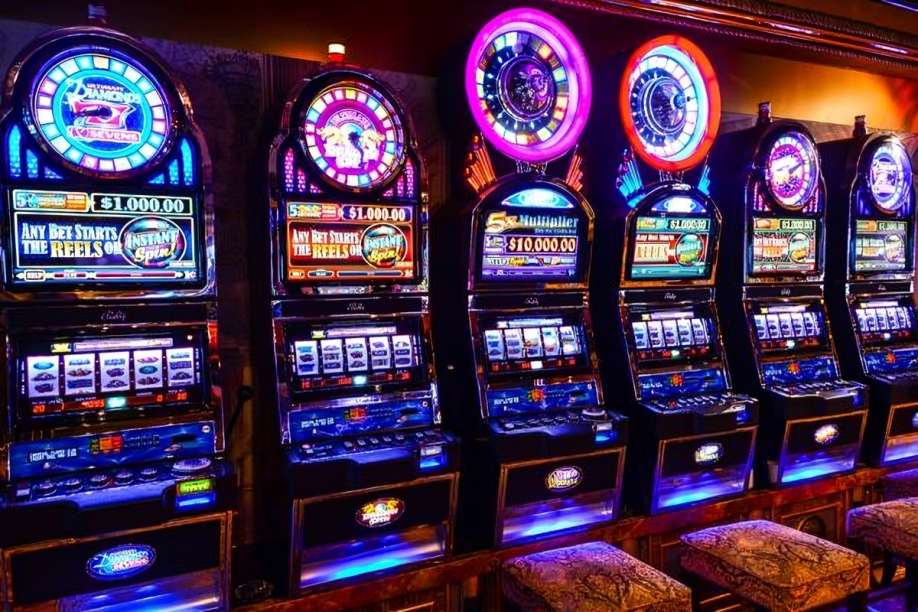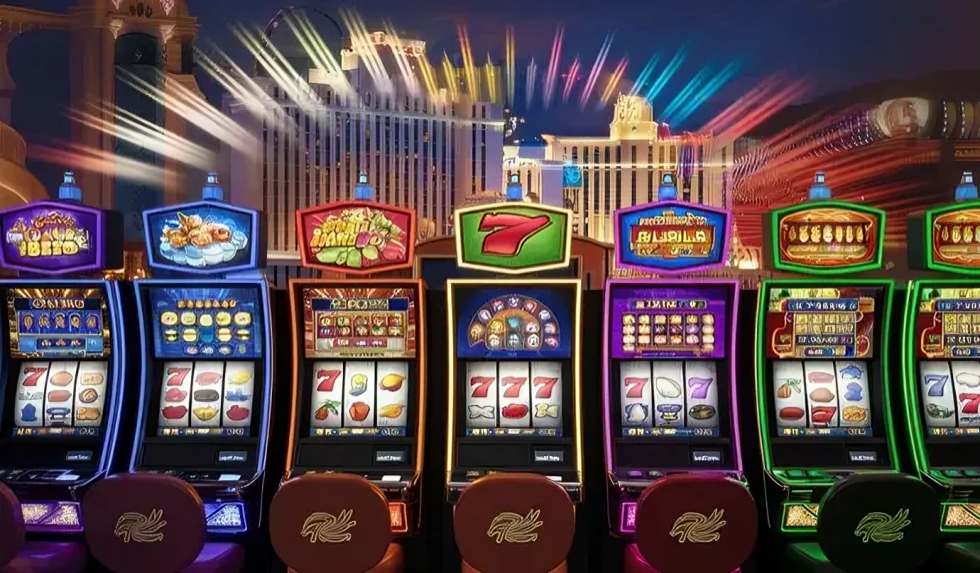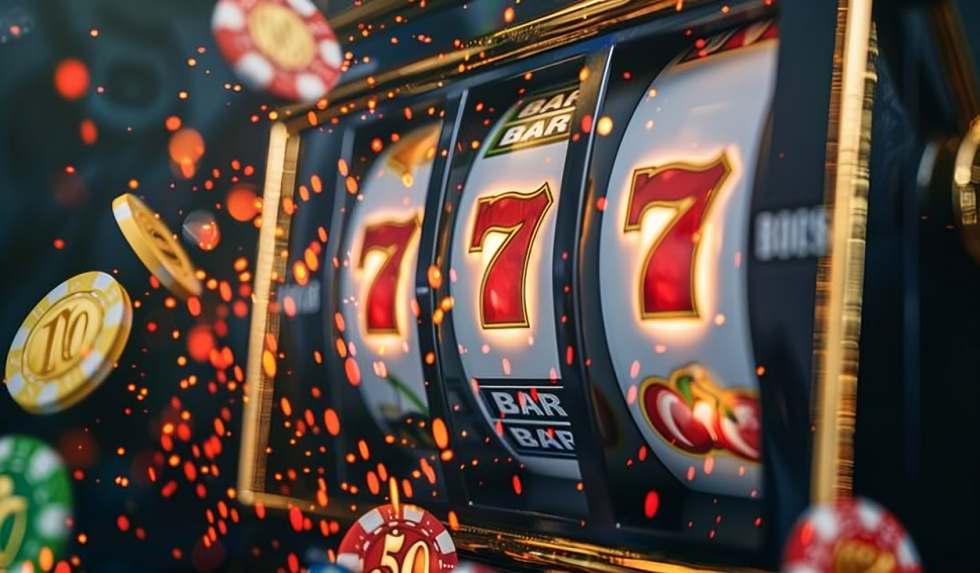Online slots offer a range of benefits that make them incredibly popular among players. They’re easy to play, require no special skills, and rely purely on chance yet they still offer the thrill of hitting big jackpots. Despite their simplicity, many players are still unsure about how these games actually operate. This uncertainty often leads to questions like: Are the slots rigged? Can casinos control the outcome?
The good news is that if you’re playing at a licensed and regularly audited online casino, the games are fair, and the outcomes are completely random. Let’s break down how online slots truly work and explore why they’re both entertaining and trustworthy.
How Do Slot Machines Work?

The history of slot machines dates back to 1895, when mechanic Charles Fey invented the first one the Liberty Bell. This early machine featured three spinning reels decorated with symbols like diamonds, spades, and hearts. A few years later, in 1907, Herbert Mills added the now-iconic fruit symbols after creating his own version of the Liberty Bell, as Fey declined to sell him the distribution rights.
Those early machines were made from cast iron and had three metal reels, each displaying 10 different symbols. Players would pull a lever to set the reels in motion, hoping for matching symbols when they stopped. A matching combination meant a jackpot, often paid out in coins directly from the machine.
Today’s slot machines have come a long way. They’ve traded in mechanical parts for digital systems, replacing physical reels with software-driven visuals. But how do these modern machines actually work—and do they still deliver the same element of randomness and excitement as their mechanical ancestors? Let’s find out.
How Modern Slot Machines Operate and How Casinos Manage Outcomes in 2025

In 2025, modern slot machines—both online and in physical casinos—no longer depend on mechanical parts or spinning reels. Instead, these games are powered by sophisticated computer software that manages gameplay and determines the outcomes. At the heart of this system is the Random Number Generator (RNG), a program that continuously produces random numbers every millisecond.
When a player spins, the RNG selects a number at that exact moment, which corresponds to specific symbols or results in the game. This process is entirely random and independent of previous spins or any external factors. The only constant is the built-in house edge, which ensures the casino maintains a statistical advantage over time.
In the case of video lottery terminals, outcomes are often linked to a central system regulated by a Gaming Commission. This authority monitors win rates and payout percentages to ensure they align with published Return to Player (RTP) values. For online slots, regulatory bodies and licensing organizations enforce regular audits of RNG software and game systems to maintain fairness and transparency for players.
Do Casinos Control Slot Machine Results and Payouts?

In short, yes casinos do have the ability to influence slot machine outcomes to a certain extent, particularly by creating games that offer small, frequent wins. Some work directly with game developers to design exclusive slot titles, which can give them deeper access to the game’s code and the Random Number Generator (RNG) behind it. In more concerning cases, unlicensed or rogue casinos might use rigged software to restrict payouts, even while advertising massive jackpots. That said, reputable, licensed casinos have strong incentives to avoid such tactics, as fair play and trust are crucial to their long-term success.
Risking Casino Licenses

In areas where gambling is legal, casino operations are closely monitored by local regulatory bodies. For example, the Nevada Gaming Commission oversees casinos in Las Vegas, while the New Jersey Casino Control Commission governs those in Atlantic City. To obtain and maintain a license, casinos must follow strict regulations and undergo regular audits to prove that their games and random number generators (RNG) are fair and secure.
Any evidence of tampering with software or RNG can lead to severe consequences, including hefty fines or permanent loss of the casino’s license. Since these licenses are essential for maintaining customer trust and legitimacy, jeopardizing them for short-term profit is both risky and irrational.
Casinos Always Have a Built-In Advantage

If you’re new to playing slots, it’s important to understand how slot variance, house edge, and RTP (Return to Player) affect your potential outcomes. The house edge reflects the average profit a casino expects to make from all bets placed over time. While players often think in terms of dollars wagered, your actual results can vary you might win more than the RTP suggests or lose more than the house edge.
This percentage is calculated across all players, meaning casinos earn a consistent profit overall. There’s no need for them to rig games—the built-in RNG (Random Number Generator) already ensures that the house edge is upheld. Instead of worrying about fairness, focus on choosing games with higher RTPs or better odds. For beginners, overlooking RTP can lead to unnecessary losses.
Regulations for Casino Slot Developers

Similar to online casinos and traditional table games, slot game developers are required to comply with industry regulations and report to designated regulatory bodies. Leading developers such as NetEnt and Playtech must submit their games for review to ensure compliance with standards related to the Random Number Generator (RNG), Return to Player (RTP), and game variance. For example, the Malta Gaming Authority mandates that all slot developers have their RNG systems thoroughly tested and approved. Failing to meet these regulatory requirements can lead to legal penalties, hefty fines, or even revocation of licenses and contracts.
To maintain credibility and ensure fair play, developers implement robust security measures to protect their game code even in cases where a casino might attempt manipulation. By the time a slot game reaches players, it has already passed through rigorous testing and been certified by relevant authorities.
Casino Credibility and Player Reviews
Online reviews play a vital role in identifying reliable casino platforms. When a casino engages in unethical practices such as rigging or manipulating games players often report their experiences through negative reviews or forum discussions to alert others.
Given the abundance of scam websites online, transparency and fairness are crucial for any casino’s longevity. While flashy promotions and promises of high payouts may attract new players, retaining them depends on honest operations. To build trust and keep players engaged over time, reputable casinos frequently offer bonuses, promotions, and loyalty rewards.


